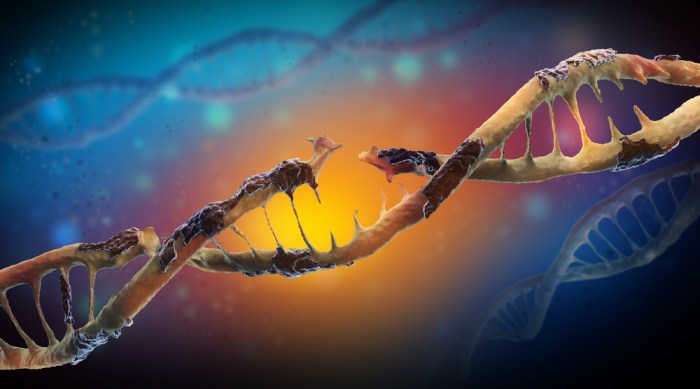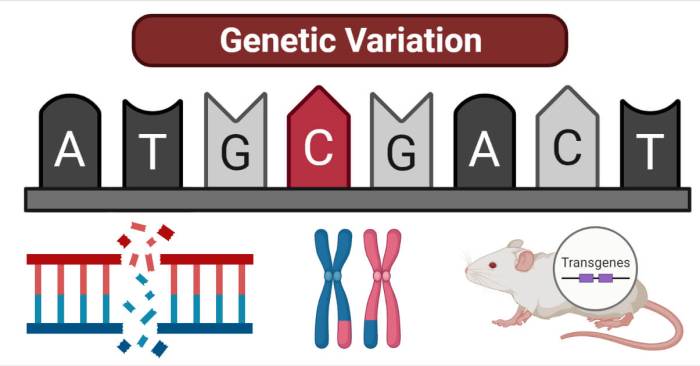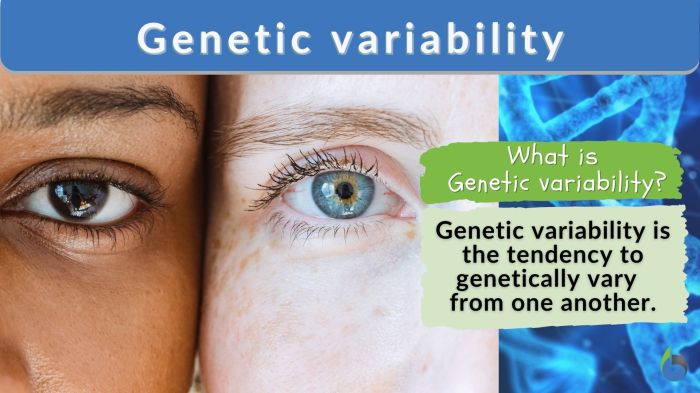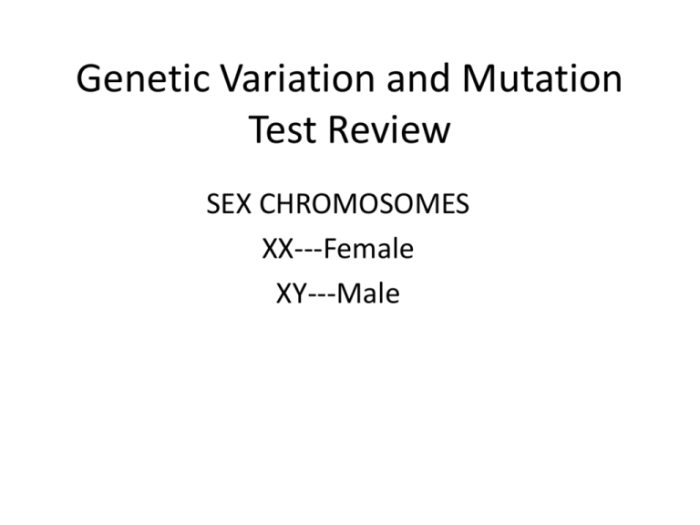Genetic mutations produce variation quick check: Embark on a journey into the realm of genetic mutations, where spontaneous alterations in the genetic code play a pivotal role in shaping the diversity and adaptability of life on Earth. Join us as we explore the mechanisms behind genetic mutations, their impact on variation within populations, and their profound implications for evolution and adaptation.
In this comprehensive guide, we will delve into the intricate processes of genetic mutations, examining how they arise, the potential consequences they may have, and their role in driving evolutionary change. We will also investigate the concept of variation, exploring how genetic mutations contribute to the genetic diversity observed within populations and the role of natural selection in shaping the survival and propagation of beneficial mutations.
Genetic Mutations: Genetic Mutations Produce Variation Quick Check

Genetic mutations are changes in the DNA sequence of an organism. They can be caused by a variety of factors, including environmental toxins, radiation, and errors during DNA replication. Mutations can have a variety of effects, from being completely harmless to causing serious diseases.
Types of Mutations
There are several different types of genetic mutations, including:
- Point mutations: These are changes in a single nucleotide in the DNA sequence.
- Insertions: These are the additions of new nucleotides into the DNA sequence.
- Deletions: These are the removals of nucleotides from the DNA sequence.
- Inversions: These are the reversals of the order of nucleotides in the DNA sequence.
- Translocations: These are the exchanges of DNA segments between different chromosomes.
Causes of Mutations, Genetic mutations produce variation quick check
Genetic mutations can be caused by a variety of factors, including:
- Environmental toxins: These are chemicals that can damage DNA, such as those found in cigarette smoke, pollution, and industrial chemicals.
- Radiation: This can damage DNA by breaking the bonds between nucleotides.
- Errors during DNA replication: These can occur when the DNA is copied during cell division.
Consequences of Mutations
Genetic mutations can have a variety of consequences, including:
- Harmless: Some mutations have no effect on the organism.
- Beneficial: Some mutations can be beneficial to the organism, such as those that confer resistance to diseases.
- Harmful: Some mutations can be harmful to the organism, such as those that cause diseases or reduce fitness.
Common Queries
What are genetic mutations?
Genetic mutations are spontaneous changes in the DNA sequence of an organism, resulting in alterations to the genetic code.
How do genetic mutations contribute to variation?
Genetic mutations introduce new alleles into a population, increasing the genetic diversity and providing the raw material for natural selection to act upon.
What role does natural selection play in genetic mutations?
Natural selection favors beneficial mutations that enhance an organism’s survival and reproductive success, leading to the accumulation of advantageous traits within a population.



